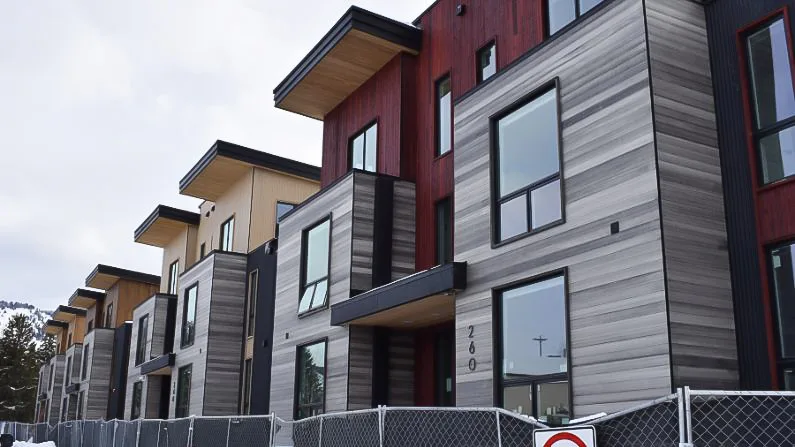Teton Valley, Idaho has a new leader trying to solve its affordability issues.
The Teton County Joint Housing Authority recently brought on its first local director, Jerod Pfeffer, who comes with a background both in construction — and making bread.
Pfeffer is a world-renowned baker and a cofounder and former owner of 460 Bread, an artisan bread company in Driggs, which delivers loaves around the region. A 20-person operation, Pfeffer said he watched his employees experience housing instability for years.
“It really brought home to me how housing is never just about housing, and how housing is the thread that runs through so many parts of our community,” he said.
The housing authority was created in 2019 by the county and the cities of Driggs, Victor and Tetonia, and has only had remote and interim leaders until now.
Now taking the helm, Pfeffer has years of experience in construction, especially using natural materials. He moved to the region back in 1999 since his wife is from Jackson.

Jerod Pfeffer, who says he started 460 Bread with his climbing partner from college, before selling the company a few years back. (Courtesy of Jared Pfeffer)
But, even back then, Pfeffer said real estate was too expensive on the Wyoming side, so the couple looked toward Idaho, buying a lot in Felt, in the north end of the county.
“I think I remember it cost us about $20,000 for five acres at the time, which is not where we’re at nowadays,” he said. “So, a lot has changed, and I’ve personally been able to see that change happen over the last 25 years.” -Teton County Joint Housing Authority Director Jerod Pfeffer
But he doesn’t have a time machine, he joked.
Instead, he said his role is to work with local nonprofits, developers and different levels of government to deal with supply and affordability gaps, to accelerate development — and find the money to do it.
“We have this massive structural issue that affects so many parts of our community, and there’s really no financial resources to do anything about it,” Pfeffer said.
The federal government’s low-income tax credit is one funding source, he added, in addition to private and philanthropic dollars.
And, similar to what’s happening on the other side of Teton Pass, private-public partnerships are underway in Victor and Driggs for income-restricted housing for rent and for sale.
These kinds of partnerships are where local governments and housing authorities partner with private developers, both bringing resources to the table and sharing in the risk. Nowadays, Jackson and Teton County, Wyoming rely entirely on private partners to do its housing development.

The Jackson Street Apartments, near downtown Jackson, are one example of a recent public-private partnership on the Wyoming side. (Hanna Merzbach/KHOL)
But Pfeffer said the Idaho housing authority is considering diverging and also starting to build housing itself.
“The reason you would make that shift is to potentially more directly benefit the public,” Pfeffer said. “…[but] we may land where the Jackson/Town County Housing Department has landed because development is incredibly risky.”
And the needs are expansive. A 2022 housing assessment found that between 1,165 and 1,580 homes are needed in the valley by 2027 to keep up with demand. Pfeffer added that multi-family rentals are especially needed at all price points.
This comes since, over the past decade, home prices have doubled and — in some cases — tripled in the valley, with the COVID-19 pandemic only accelerating the upward trend.
Pfeffer recalled being on a trip in Hawaii recently and someone surprised him by saying they were planning to move to Driggs.
“Teton Valley is a small place in a big world with really unique amenities,” he said. “Like Jackson, we have mountains. We have clean water. We have fresh air. We have fishing. We have skiing.”
Pfeffer said the Teton Valley housing crisis might not be at Jackson’s level yet, but with people increasingly appreciating the outdoors, it could be headed in that direction.
“People can’t see a way to stay and work and live in this place,” he said. “I’m worried.”
But, Pfeffer said, he believes the housing authority can help at least make a dent in the crisis.






